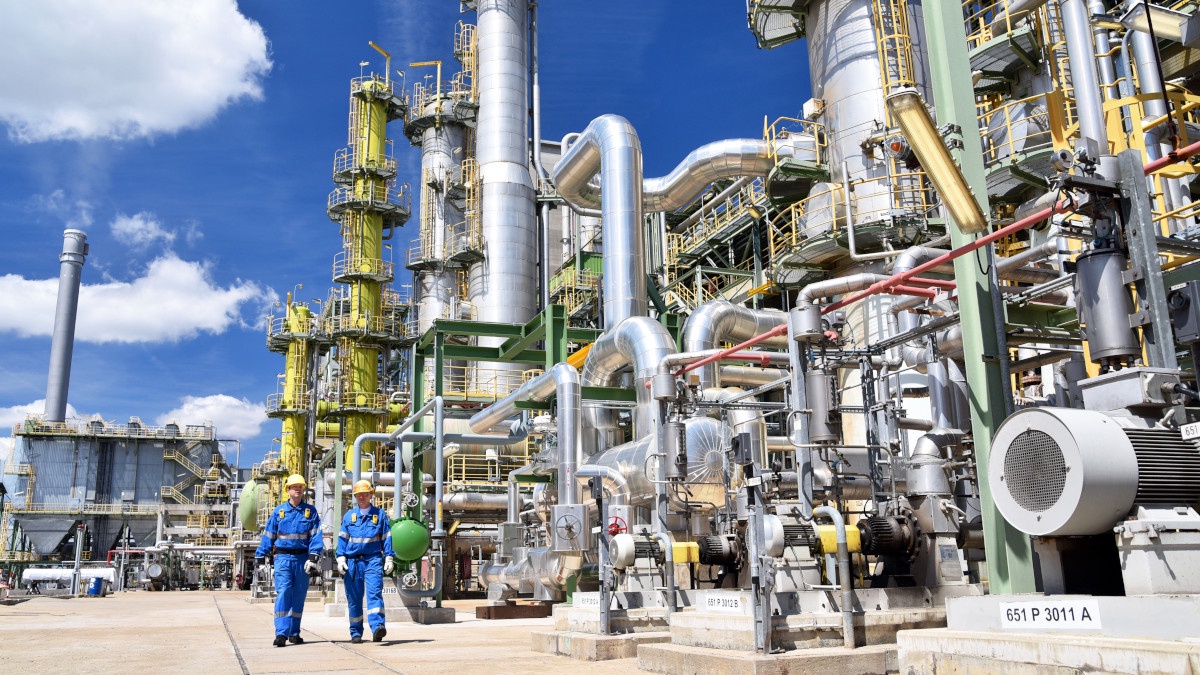
Genesis Oil and Gas
The vision for the new MSc is to create a world-class centre of research and teaching in process safety, It’s too important a subject to not have a real focus on it for chemical engineers.
This programme examines the primary technologies and operations involved in upstream oil and gas processing, with a particular focus on operational safety, risk assessment and risk management.
This programme has January and September start dates. Apply Now.
The MSc Process Safety is also available to study part time online.

The School of Engineering has focused on safety-related teaching and research for over 30 years and is today established as one of the key centres for safety engineering teaching and research in the UK.
The MSc Process Safety is developed with the Institution of Chemical Engineers (IChemE) and industry to produce qualified Process Safety Engineers. On this programme, you will be exposed to the major issues and challenges facing industry today, including operational safety, risk assessment and management and develop a professional approach to managing these accordingly.
This programme is distinctive because it is designed for students with a chemical engineering background, or those with a background in Petroleum or Mechanical Engineering, with good chemical/chemistry knowledge.
A major component of the MSc Process Safety programme is understanding and managing risk. You will be introduced to the tools and processes used to identify, assess and manage risk, taking such issues as process operations and human factors into account.
Aberdeen is known as the Energy Capital of Europe and with hundreds of energy operators and supply chain companies based in the city and surrounding region and numerous industry conferences, networking and career events taking place every year, there is simply nowhere better to gain industry exposure while studying for your energy degree.
Our industry advisory panels help ensure that the content and learning outcomes of our programmes reflect the needs of the industry while guest lectures from energy sector experts and industry-supported projects also help ensure our students’ learning is in line with industry's standards.
This degree holds accreditation from the Institution of Chemical Engineers (IChemE), ensuring that the curriculum is designed and delivered to the highest professional standards.
We will endeavour to make all course options available. However, these may be subject to change - see our Student Terms and Conditions page.
Self-funded international students enrolling on postgraduate taught (PGT) programmes will receive one of our Aberdeen Global Scholarships, ranging from £3,000 to £8,000, depending on your domicile country. Learn more about the Aberdeen Global Scholarships here.
To see our full range of scholarships, visit our Funding Database.
The principal method of student assessment is through written examinations. Candidates are normally expected to pass all examinations and all projects submissions. MSc candidates must submit a dissertation on their project, and may be required to undergo an oral examination.
The information below is provided as a guide only and does not guarantee entry to the University of Aberdeen.
Please enter your country to view country-specific entry requirements.
To study for a Postgraduate Taught degree at the University of Aberdeen it is essential that you can speak, understand, read, and write English fluently. The minimum requirements for this degree are as follows:
IELTS Academic:
OVERALL - 6.5 with: Listening - 5.5; Reading - 5.5; Speaking - 5.5; Writing - 6.0
TOEFL iBT:
OVERALL - 90 with: Listening - 17; Reading - 18; Speaking - 20; Writing - 21
PTE Academic:
OVERALL - 62 with: Listening - 59; Reading - 59; Speaking - 59; Writing - 59
Cambridge English B2 First, C1 Advanced, C2 Proficiency:
OVERALL - 176 with: Listening - 162; Reading - 162; Speaking - 162; Writing - 169
Read more about specific English Language requirements here.
You will be required to supply the following documentation with your application as proof you meet the entry requirements of this degree programme. If you have not yet completed your current programme of study, then you can still apply and you can provide your Degree Certificate at a later date.
Eligible self-funded postgraduate taught (PGT) students will receive the Aberdeen Global Scholarship. Explore our Global Scholarships, including eligibility details, on our dedicated page.
Aberdeen Global ScholarshipsSafety will always remain one of the most important areas of focus for industry. This will result in a continuous demand for skilled, knowledgeable academics around the globe.

The vision for the new MSc is to create a world-class centre of research and teaching in process safety, It’s too important a subject to not have a real focus on it for chemical engineers.

You will be taught by a range of experts including professors, lecturers, teaching fellows and postgraduate tutors. However, these may be subject to change - see our Student Terms and Conditions page.